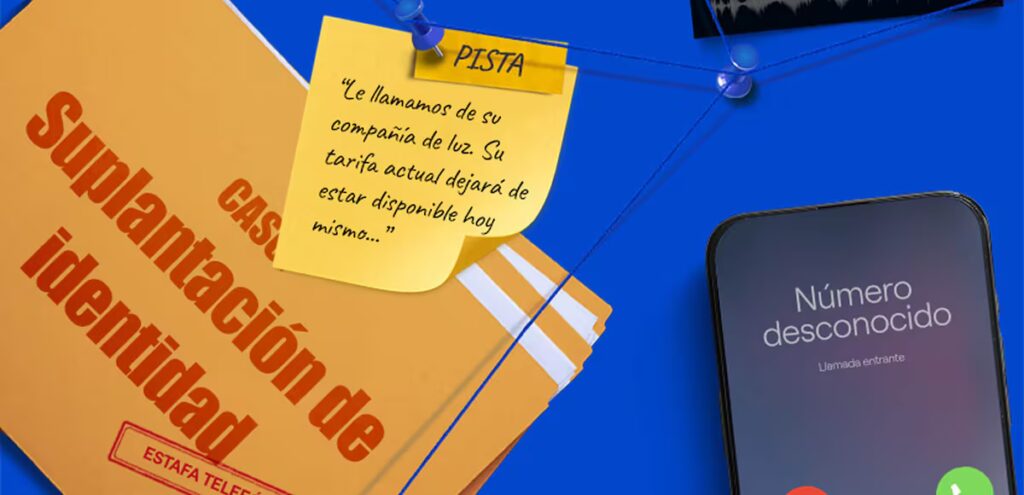Table of Contents
ToggleUnderstanding Phishing Scams in the Energy Sector
Digitalization has simplified many aspects of our lives. We can pay bills via mobile phones, manage contracts through applications, and access real-time information through email. However, this convenience comes with risks, particularly in the form of phishing scams related to electricity supply.
The Risks of Fraudulent Practices
Anyone can fall victim to these scams. The National Markets and Competition Commission (CNMC) reports that almost 7% of changes in electricity and gas suppliers involve some sort of documentary irregularity or lack of clear consent. The primary channel for these fraudulent activities is via telephone, where malicious calls can seamlessly switch customers from one company to another without their consent.
Almost 7% of changes in electricity and gas marketers present some type of documentary irregularity or lack of clear consent, according to the CNMC.
A Deception That Evolves
The term phishing has been around for over 30 years, originating from cybercriminals attempting to steal internet passwords via forged emails. In Spain, customers can easily switch between over 400 energy companies. Last year, more than 24% of consumers made such changes; however, many did so involuntarily due to deception. Scammers primarily use phone calls to manipulate unsuspecting individuals.
The sophistication of these scams has increased significantly. Today, fraudsters craft highly personalized narratives, introducing themselves as staff from energy companies and using actual customer data—such as names and addresses—to build credibility. They often present attractive discounts or urgent procedural claims regarding invoices or contracts to create a sense of urgency, pushing victims into hasty decisions. Recent advancements in artificial intelligence have enabled scammers to generate even more convincing scripts and synthetic voices that mimic professional tones.
Not all scams have the same goals; some seek immediate financial gain, while others gather personal data for future fraud.
Types of Fraudulent Activities
According to Endesa, these practices commonly include:
- Change of marketing company without consent: The scammer convinces users to modify their contracts and earns a commission for each change made.
- Identity theft: Personal information obtained is used to impersonate the victim.
- Sale of data to third parties: Extracted data is sold to others for commercial or illicit uses.
- Purchases with stolen financial data: If credit card numbers or bank details are accessed, online purchases can be made without consent.
- Fake urgent payments: Victims receive messages demanding immediate payment to avoid, for example, an alleged power outage.
The Importance of Understanding Energy Companies' Roles
All of these scams leverage psychological manipulation to prompt victims into hasty actions. A crucial step in avoiding these frauds is understanding the distinct roles of energy companies. The marketer is the entity with which customers have a contractual relationship; they are responsible for billing. In contrast, the distributor physically delivers energy to homes without a direct contractual relationship with consumers.
Many scammers exploit the confusion between these two entities. If someone claims to be a distributor requesting bank details or contract changes, it should raise alarm bells. Endesa emphasizes that marketing companies never proactively ask for personal or banking information unless initiated by the customer themselves.
Protecting Yourself from Fraud
Preventative measures against these scams can be split into two phases: before and during a potential fraud attempt. Staying informed is vital. Endesa has implemented numerous initiatives, including practical guides, alerts, and social media advisories, along with informative newsletters dedicated to fraud awareness. Communication extends to employees and sales channels to help them recognize and address suspicious activities.
If a suspicious call or message is received, following these guidelines can be useful:
- Ask questions to determine whether the caller is a marketer or distributor.
- Never provide personal information.
- Do not make quick decisions.
- Verify the call through official company channels.
Endesa has launched an authorized phone finder on its website, allowing users to quickly check if a contacted number belongs to the company.
This phone finder can help determine if the contacting number is legitimate. Keeping a record of the number can also be useful if there's a need to file complaints with organizations like the National Police or the CNMC. In today's interconnected environment, information serves as the best defense against fraud, making vigilance essential.










